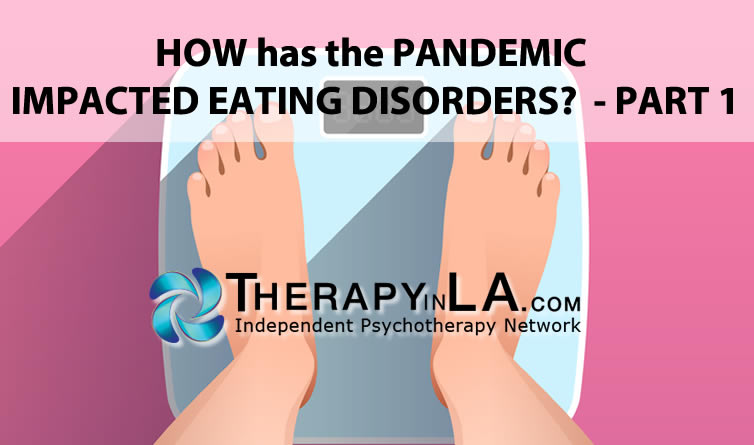HOW has the PANDEMIC IMPACTED EATING DISORDERS? – PART 1
HOW has the PANDEMIC IMPACTED EATING DISORDERS? – PART 1
By Alan M. Solomon, Ph.D.
As repeatedly noted in these blogs, as well as in featured articles, on this website, the COVID 19 pandemic has generated substantial increases in anxiety, depression, substance abuse, child abuse, domestic violence, sleep difficulties, and weight gain for many people. We can add at least one more concern to the list: eating disorders among teenagers ( https://www.nytimes.com/2021/04/28/well/family/teens-eating-disorders.html ).
Ask Erin Accurso, the clinical director of the eating disorders program at the University of California, San Francisco: “….our inpatient unit has exploded in the past year”, taking in more than twice as many adolescent patients as it did before the pandemic. Outpatient services are overwhelmed in a similar way: “Providers aren’t taking new clients or have wait-lists up to six months.”
An epidemiologist at Boston Children’s Hospital, S. Bryn Austin, notes that colleagues report this “from all across the country.” Hotlines are overwhelmed as well: The helpline at the National Eating Disorders Association has seen a 40% increase in calls since March 2020.
Without the structure of a school day and the support from their friends in-person, “many of the things that structured a teenager’s life evaporated in one fell swoop,” noted Dr. Walter Kaye, founder of the eating disorders program at the University of California, San Diego. “People who end up with eating disorders tend to be anxious and stress sensitive – they don’t do well with uncertainty.”
High achieving kids, who usually direct their efforts to academics, athletics, or extracurricular activities, lost these areas of focus, leaving them with too much unstructured time. As Dr. Accurso noted, “Some kids turned their attention toward physical health or appearance as a way to cope with anxiety or feel productive. Their goals around ‘healthy’ eating or getting ‘in shape” got out of hand.” Quick weight loss could be the result.
For other kids, eating comfort foods became a way of coping; being at home meant food was readily available all day compared to being in school. Alternatively, food insecurity in some homes due to job losses for parents, can raise anxiety for teenagers prompting them to skip meals, fast, or abuse laxatives to control their food intake and weight.
Then there’s the recently identified impact of social media, especially for girls. More screen time during the pandemic can provide more support and social contacts, yet it can also expose them to images of peers and influencers who have idealized body images. Comparing themselves unfavorably “…creates a downward spiral in terms of body image and self-esteem. It makes them more likely to adopt unhealthy weight control behaviors.,” as noted by Dr. Austin.
Looking for fitness guidance online can be seriously troubling: “thinspiration” or “fitspiration” postings can celebrate being unnaturally slim or sculpted. There are even websites that actively encourage eating behaviors that are unhealthy. Search engine algorithms and/or cookies will take someone’s subsequent searches in these directions, even providing ads for dangerous diet supplements.
See Part 2 for interventions.
Alan M. Solomon, Ph.D. is a clinical psychologist in private practice in Torrance, CA. A member of the Independent Psychotherapy Network, he can be reached at dralanms@gmail.com or 310 539-2772. In-person or telehealth sessions are available.
Copyright 2022 by Alan M. Solomon, Ph.D.

